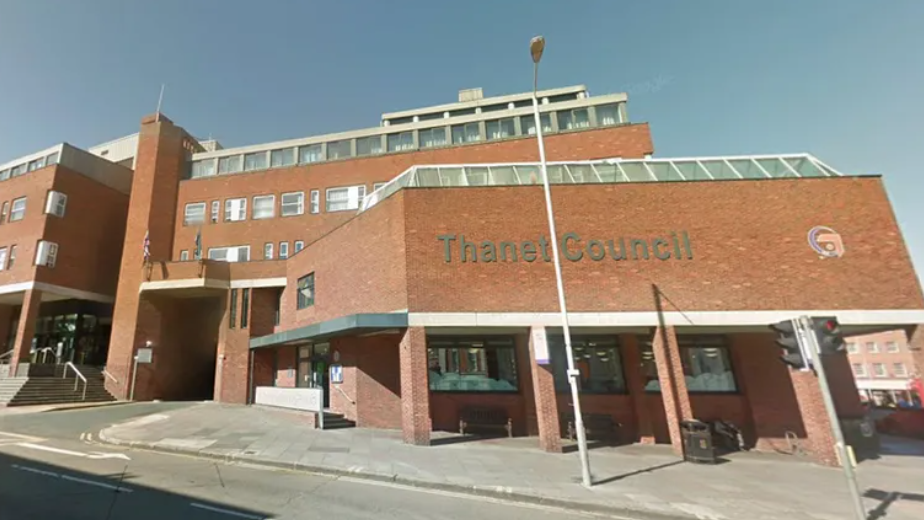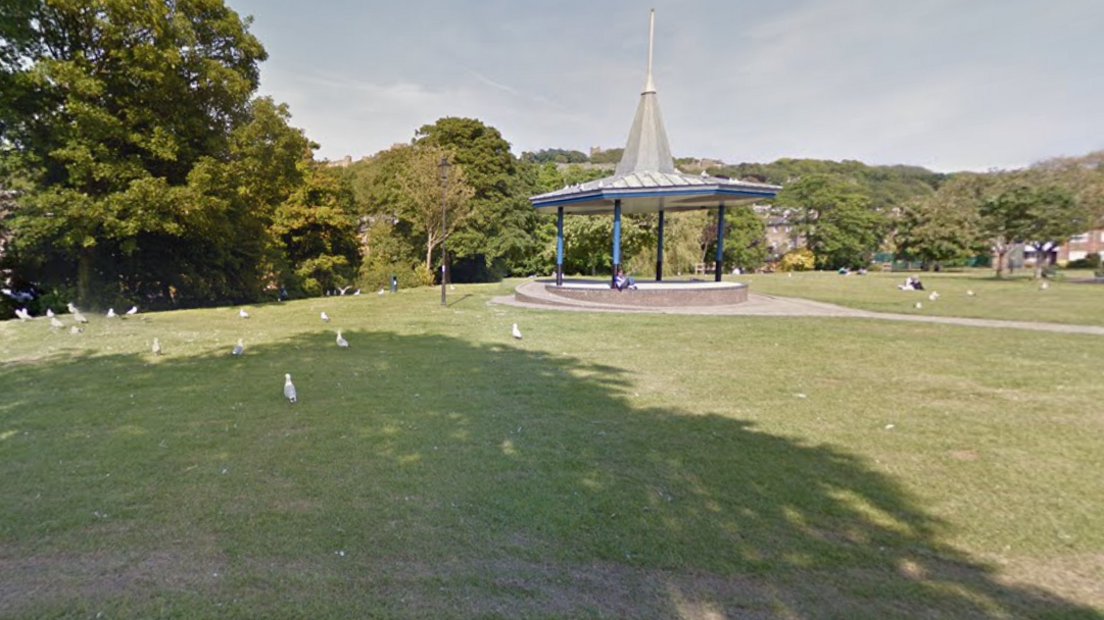Council renews efforts to fine people for swearing

Thanet District Council has reapplied for a PSPO, highlighting issues with swearing, drug use and alcohol
- Published
A council in Kent is renewing its efforts to introduce fines for people who are caught swearing in public.
Thanet District Council last summer planned to enforce a public space protection order (PSPO), which aims to target anti-social behaviour, including foul language.
However, those plans were rejected amid a threat of a legal challenge.
The authority has renewed its efforts for a PSPO to be introduced in areas including Margate, Broadstairs and Ramsgate, highlighting issues with swearing, drug use and alcohol.
A PSPO makes it an offence to refuse to stop drinking alcohol in public, leave the area or use foul and abusive language if requested by a police or council officer.
A fine of £100 can be issued.
In a statement in support of the order, Ch Insp Ian Swallow said the implementation was a "necessary measure" to reduce crime, disorder and anti-social behaviour in Thanet.
'Reasonable excuse'
In a council document presented at a meeting, the authority said there was "ongoing issues with anti-social behaviour" in the area.
It said there was overwhelming support for a PSPO among those consulted on the matter, following changes to its previous application.
However, some of those consulted raised concerns that the PSPO could be used against peaceful protestors, while others were worried that young people may be fined wrongly for gathering in a group.
One person said in the council papers: "Whilst I disagree with foul language, I think that it is part of life today in the UK. I don't really see that it could cause harassment, alarm or distress to the majority of people."
In response to these concerns, the council highlighted that there was a defence of "reasonable excuse", and that the Human Rights Act remained applicable.
Thanet District Council said the behaviours referred to within the orders were similar to the previous PSPOs in Thanet, which were in place between 2018 and 2024.
"It is not a subjective measure. It is an objective test and any anti-social behaviour would be judged against the impact on the reasonable person - a legal benchmark for evaluating behaviour which ensures individuals are held to a fair and consistent standard of conduct," a spokesperson said.
Follow BBC Kent on Facebook, external, on X, external, and on Instagram, external. Send your story ideas to southeasttoday@bbc.co.uk , external or WhatsApp us on 08081 002250.
Related stories
- Published31 July 2024

- Published15 July

- Published10 July
